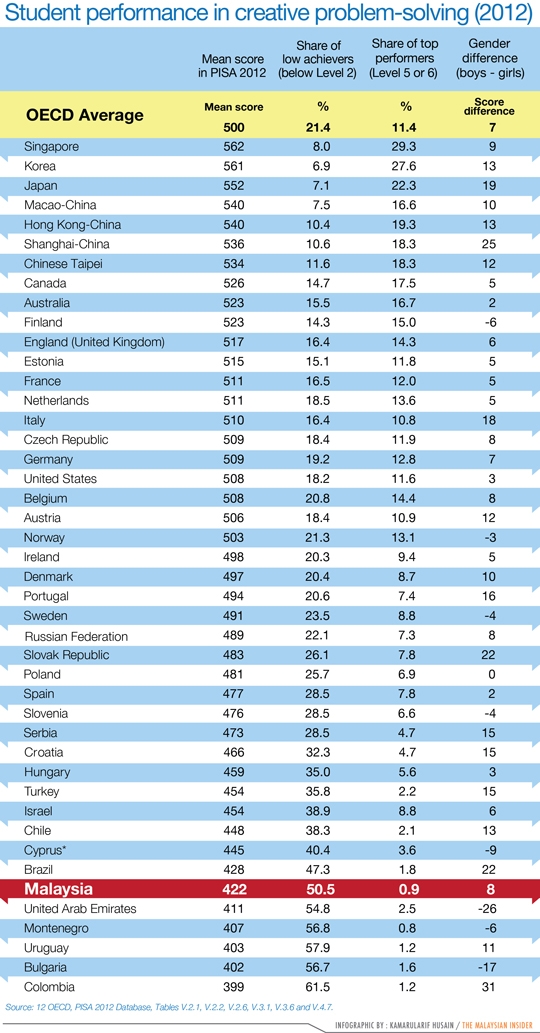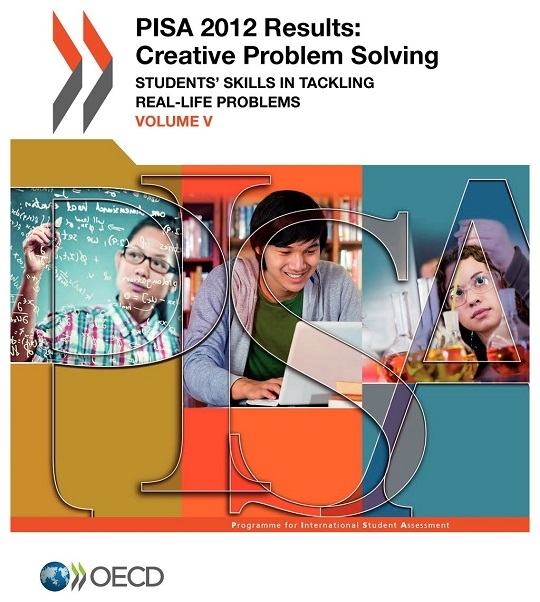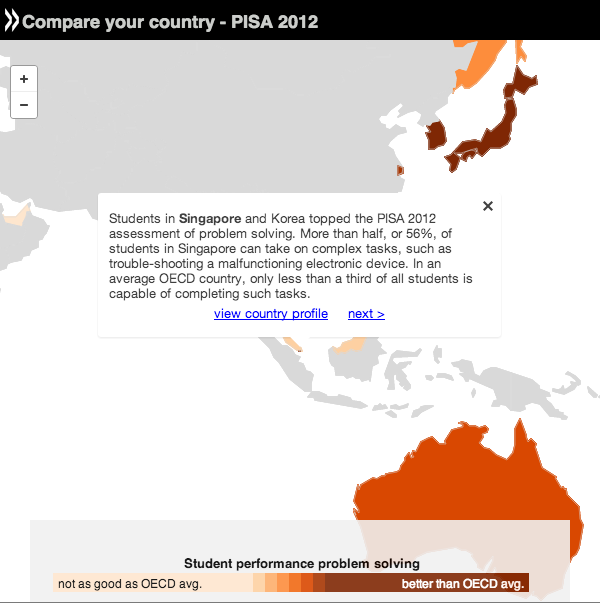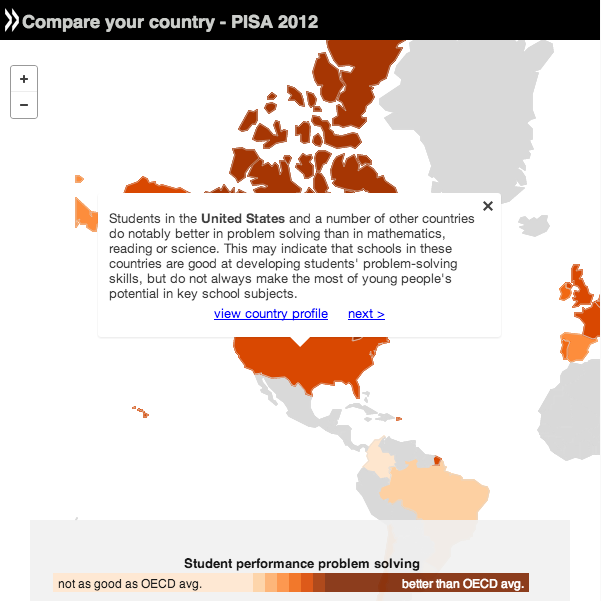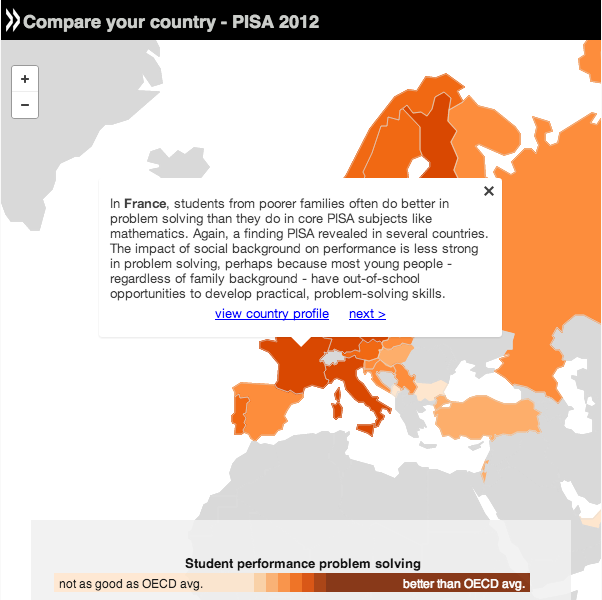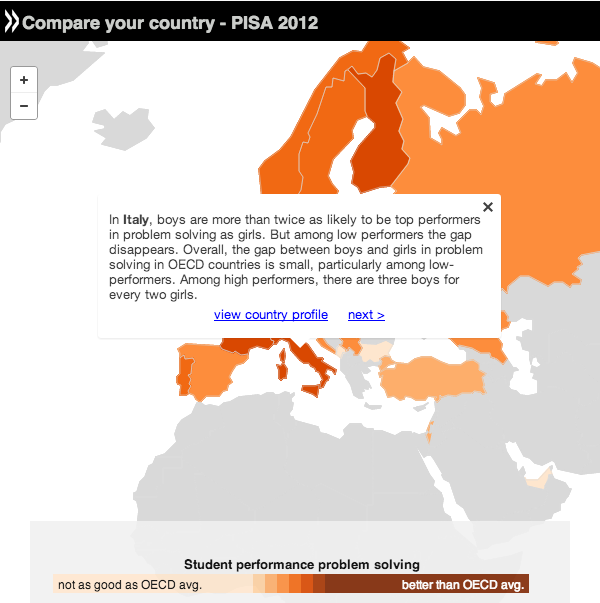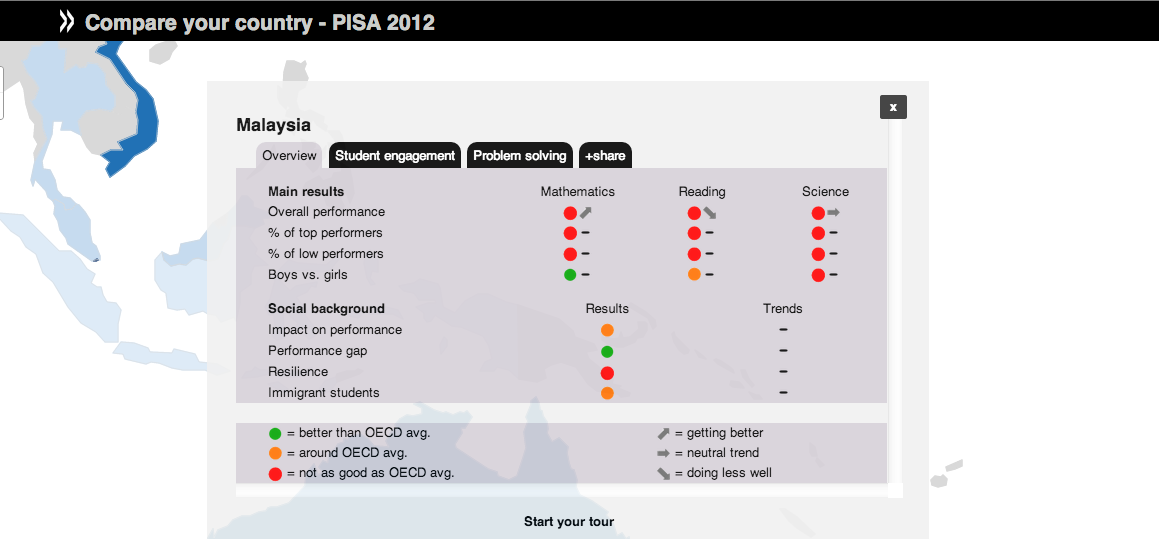The World's Best Problem Solvers Are Asians, But Not Malaysians
According to Programme for International Student Assessment (PISA), Malaysian students are not very effective when it comes to problem solving.
Malaysia has scored a ranking of 39 out of 44 countries in a creative problem-solving test that measures the skills young people use when faced with everyday problems
Malaysia once again fared poorly in a world student performance assessment test conducted in 2012, ending up in the bottom quarter among 44 countries – a result that reinforces the concern that the country’s education system is in tatters.
Malaysia has scored a ranking of 39 out of 44 countries in a creative problem-solving test that measures the skills young people use when faced with everyday problems
Image via themalaysianinsider.com85,000 fifteen-year-old students from 44 countries took part in the Programme for International Student Assessment's (PISA) first assessment on creative problem-solving measures
85,000 students from 44 countries and economies took the computer-based test, involving real-life scenarios to measure the skills young people will use when faced with everyday problems, such as setting a thermostat or finding the quickest route to a destination.
Results show that Asian students are the best problem solvers with Singapore, Korea, Japan, and China taking the top seven spots
Students from Singapore and Korea have performed best in the OECD PISA first assessment of creative problem-solving. Students in these countries are quick learners, highly inquisitive and able to solve unstructured problems in unfamiliar contexts. Japan, Macao‑China, Hong Kong-China, Shanghai-China and Chinese Taipei were also among the top-performing economies.
Results show that Asian students are the best problem solvers with Singapore, Korea, Japan, and China Taking The Top Seven Spots
Image via imgur.comStudents from Canada, Australia, Finland, England, Estonia, France, the Netherlands, Italy, the Czech Republic, Germany, the US and Belgium also scored above average results
Students from Canada, Australia, Finland, England, Estonia, France, the Netherlands, Italy, the Czech Republic, Germany, the United States and Belgium all scored above the OECD average.
Not all countries that did well in school subjects like mathematics or science did well on the problem-solving test. Conversely, students in the United Kingdom, the United States and Japan did better on problem-solving than in key school subjects.
Comparatively, Malaysia scored the bottom sixth position with a below average mean score of 422 out of 500
Malaysia scored the bottom sixth position with a below average mean score of 422 out of 500
Image via imgur.comMalaysia ranked 39 with a mean score of 422 in the Programme for International Student Assessment (PISA) first assessment on creative problem-solving, while neighbouring Singapore came out tops with a mean score of 562, said the report released yesterday by the Organisation for Economic Co-operation and Development (OECD). The overall mean score for all countries was 500.
yahoo.comMalaysians scored 29.1 on solution rate on tasks measuring the acquisition of knowledge and 29.3 on solution rate on tasks measuring the utilisation of knowledge while Singapore scored 62 and 55.4 respectively, way above the average score of all countries, which are 45.5 and 46.4 respectively.
On the other hand, Malaysia only had 0.9% share of top performers compared with Singapore's 29.3%. Malaysia's share was below the average percentage of 11.4%. This showed that only one out of 10 Malaysian students, aged 15, is able to solve the most complex problems, compared with one in five in Singapore, Korea and Japan.
yahoo.comAccording to The Malaysian Insider, these results signify the weakness in the country's education system
Malaysia had more than half of the share of low achievers, which means the students tested lacked the skills needed in a modern workplace.
Malaysia's continuous dismal performance in international assessments highlights the weaknesses in the country's schooling system, despite the fact that education gets the largest share of funds every year from the national budget. Critics have pointed out that the PISA results contradicted Putrajaya’s insistence that Malaysia has a world-class education system.
Acting Director of Education and Skills at the OECD says policy makers should reshape schooling systems to help students develop problem-solving skills needed in today's economies
"Today's 15-year-olds with poor problem-solving skills will become tomorrow's adults struggling to find or keep a good job," said Andreas Schleicher, acting director of Education and Skills at the OECD.
"Policy makers and educators should reshape their school systems and curricula to help students develop their problem-solving skills which are increasingly needed in today's economies," he said.
